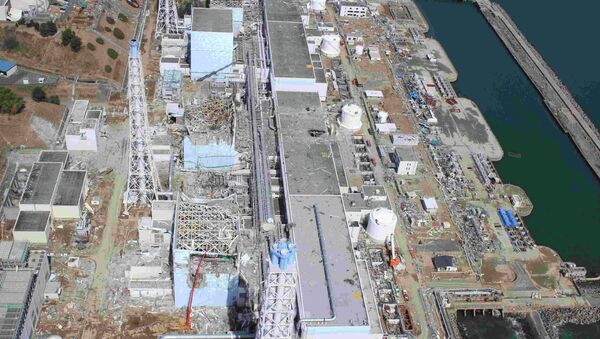VLADIVOSTOK, October 8 (RIA Novosti) – The Fukushima nuclear disaster in the Sea of Japan has not affected the surrounding atmosphere, representatives from the Admiral G. Nevelsky Russian Maritime State University told RIA Novosti Wednesday.
"Tests have been carried out at 9 out of 11 stations in the testing area of the Pacific Ocean, and no impact on the atmosphere has been detected," an expedition scientist said.
A group of experts set sail from Russia's largest seaport, Vladivostok to the Sea of Japan on September 25 on the research vessel, the Professor Khlyustin with the aim of tracing nuclear contamination levels in the northwestern Pacific Ocean. The expedition is taking place under the auspices of the Russian Geographical Society with experts from the Russian state-run nuclear corporation Rosatom, the Russian hydrometeorological agency Rosgidromet, the Defense Ministry, the Russian consumer rights watchdog Rospotrebnadzor and the Admiral G. Nevelsky Maritime State University taking part.
In March 2011 the worst nuclear disaster since Chernobyl in 1986 took place at the Fukushima Daiichi nuclear power plant in Japan. An earthquake triggered a tsunami which slammed into the plant, disabling it. The surrounding population were evacuated from their homes fearing the effects of the ensuing elevated radiation levels and many still have not returned to their homes.
Since then, scientists from all over the world have tested the surrounding water and soil for radiation, as well as monitored the health of local wildlife populations. In October 2012, scientists measured levels of cesium - 137 2,500 times greater than normal in sea fish. In August 2012 the Associated Press reported mutations found in pale grass blue butterflies, a common species in Japan. The mutations were the first evidence that the radiation had caused genetic changes in living organisms.




